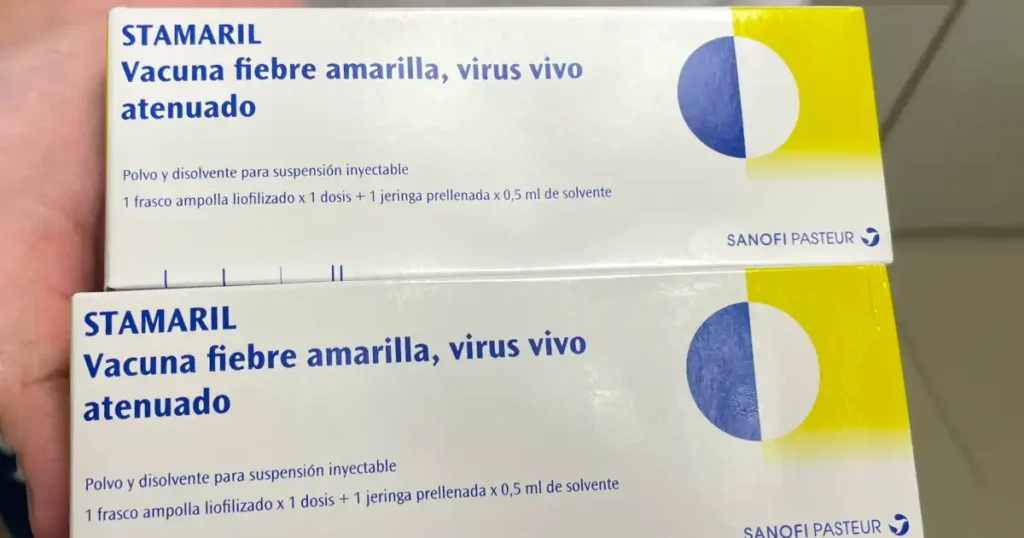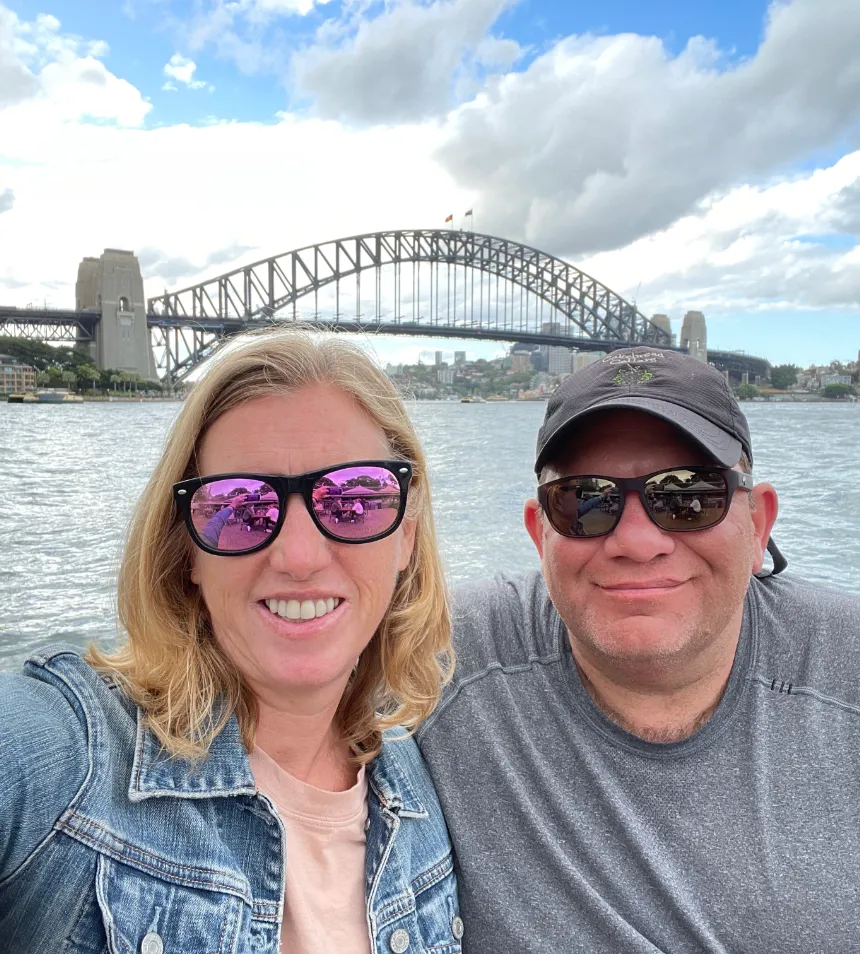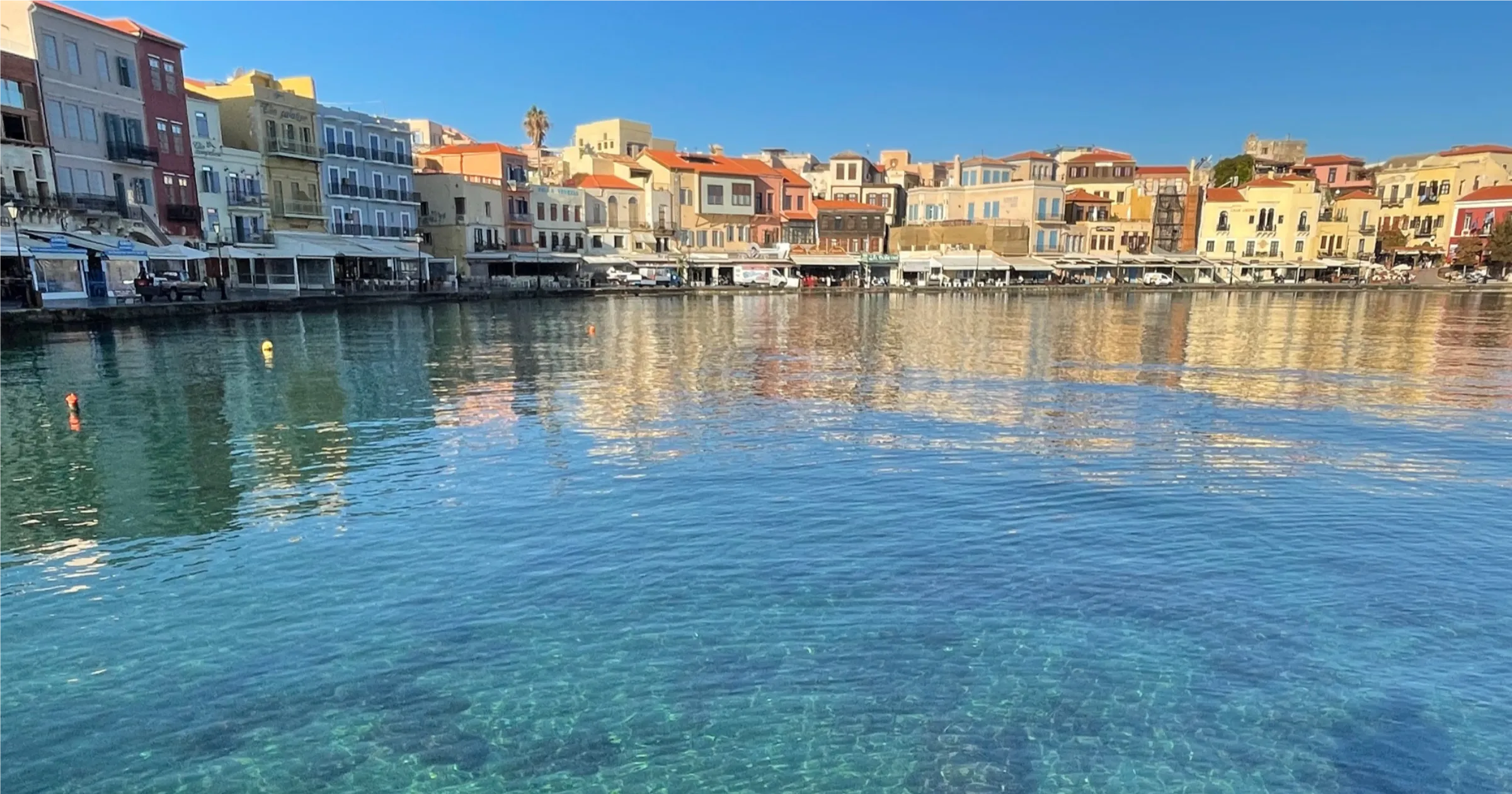Yellow Fever Vaccine, Vital Health Tips for Nomads Over 50
As nomads over 50, health and safety are always top priorities when planning our adventures. Our current trip to South America is no exception, especially as we prepare to explore regions with prevalent mosquito-borne illnesses like yellow and dengue fever.
Vaccines are a crucial part of this preparation. In this post, we’re diving into what we’ve learned about yellow fever and dengue vaccines, along with vital health tips for travelers over 50. Whether you’re a seasoned explorer or planning your first long-term journey, these insights can help you stay safe and healthy on the road.
Table of Contents
QUICK NOTE: This post contains affiliate links and Two Traveling After One may receive a commission for purchases made through these links, at no extra cost to you.

Yellow Fever Vaccine: Timing and Process
Yellow fever is a real risk in South America, Asia and Africa. Many countries require proof of vaccination for entry if you’re traveling from an affected area. Here’s what you need to know:
Timing Is Everything
Get vaccinated at least 10 days before traveling to an at-risk region. This gives your body time to develop immunity and ensures compliance with entry requirements.
Consult Your Doctor
Do You Need a Prescription for the Yellow Fever Vaccine?
If you’re planning to visit areas where yellow fever is a risk, you might wonder if you need a prescription for the vaccine. The answer? In many cases, yes. Here’s why and how to prepare for the process.
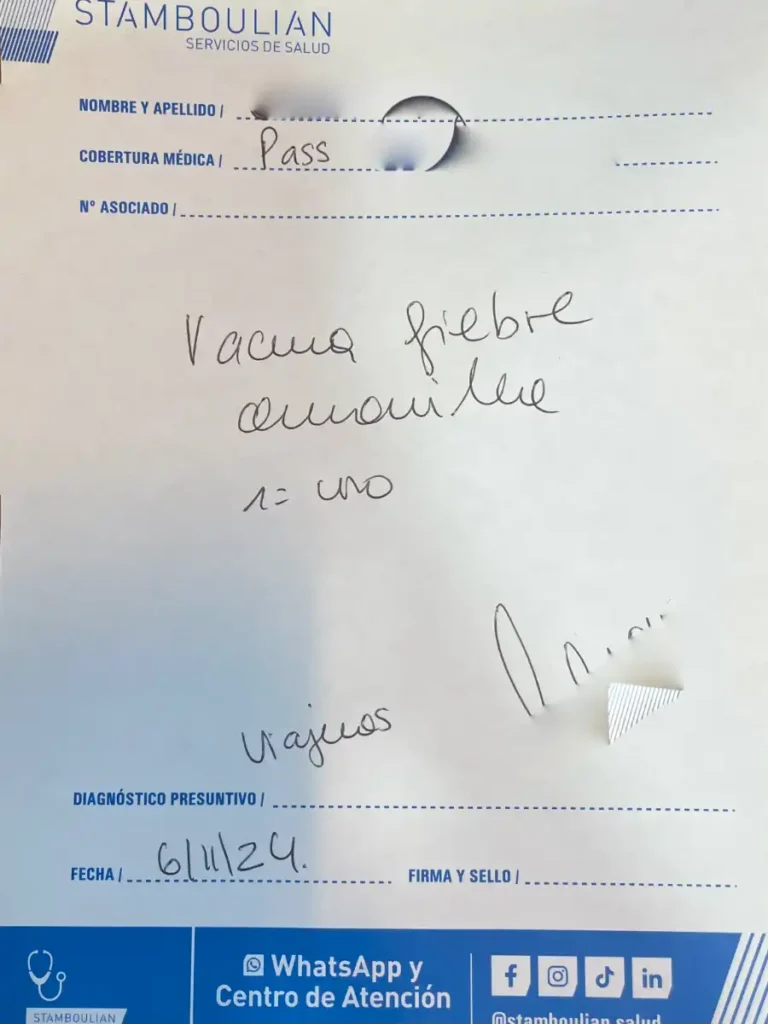
Why is a Prescription Required?
The yellow fever vaccine is a live vaccine, which means it’s not suitable for everyone. To ensure it’s safe for you, a healthcare provider will evaluate your:
- Medical history: Do you have conditions like immunodeficiency or severe allergies to the ingredients?
- Current medications: Are you taking any that may interact with the vaccine?
- Travel itinerary: Are you visiting areas where yellow fever is endemic, or do you need proof of vaccination for entry?
- Very Important: Individuals with organ transplants should avoid live vaccines, including yellow fever unless their healthcare provider advises otherwise. Here’s why:
- Immune Suppression: After an organ transplant, patients typically take immunosuppressive medications to prevent rejection of the new organ. These medications suppress the immune system, interfering with the body’s ability to handle live vaccines, increasing the risk of developing the disease the vaccine is meant to prevent.
Additionally, having a prescription in addition to the vaccine documentation ensures proper documentation for immigration or health authorities, especially if the vaccine is mandatory for your destination.
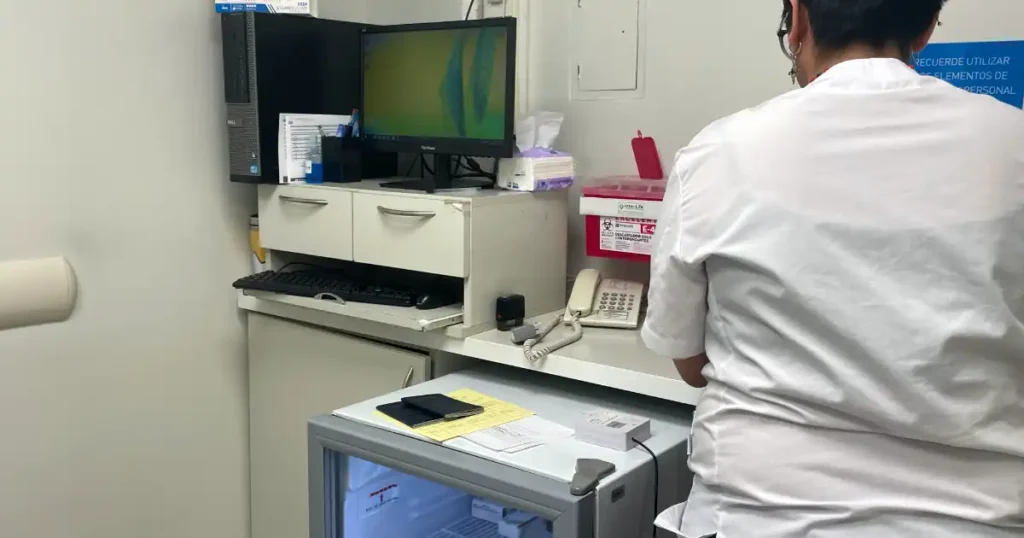
Looking for More Slow Travel Tips?
How to Get a Prescription
- Book a Pre-Travel Consultation: Schedule an appointment with your primary care physician or a travel health clinic. They’ll assess your need for the vaccine based on your destination and personal health.
- Discuss Your Health and Travel Plans: Provide details about where you’re traveling and for how long. The provider will evaluate your risk level.
- Receive the Prescription: If the vaccine is deemed necessary and safe, they’ll issue a prescription, which you’ll take to a certified vaccination center. We spend very little time in the US annually and had our consultation and vaccine administered while we were in Buenos Aires at two different locations; our consultation was at Stamboulian Health Services, and our vaccines were delivered at Stamboulian Services de Salud; both facilities were within a couple of blocks of each other. We also found an additional resource in the US through the CDC’s Yellow Fever Vaccination Clinic Search tool

Tips for a Smooth Process
- Bring Identification: Most vaccination centers require your passport or a government-issued ID during your visit. (A passport is often needed when receiving your vaccine outside the US.) We learned this the hard way and were turned away on our first visit.
- Plan Ahead: The vaccine must be administered at least 10 days before travel, as this is the time needed for your immunity to build. Don’t wait until the last minute!
- Know the Costs: In our experience, the consultation costs $40 per person, and the vaccine costs $160 per person. Keep your receipts for insurance reimbursement.
Why This Step is Worth It
Not only does the yellow fever vaccine protect you from a potentially life-threatening disease, but it also comes with lifelong immunity, so once you’re vaccinated, you’re covered for future adventures in yellow fever zones worldwide.
Navigating the Vaccine Center
Once you have your prescription, visit a certified yellow fever vaccination center. These centers are the only places authorized to issue the International Certificate of Vaccination or Prophylaxis (ICVP), also known as the yellow card, which is often required for entry into specific countries. Keep this document safe and secure; It’s as essential as your passport for travel in specific regions!
By planning and ensuring you meet all the requirements, you’ll have one less thing to worry about on your South American or other global adventure.
Side Effects
The yellow fever vaccine is generally safe, but like any vaccine, it can cause some side effects. Here’s a breakdown of some of the common side effects to expect, as well as what we encountered ourselves and their timing:
Common Side Effects
- Immediate Reactions (Within Hours to a Day):
- Soreness or redness at the injection site
- Mild swelling at the injection site
- Short-Term Reactions (1–3 Days Post-Vaccination):
- Headache
- Low-grade fever
- Muscle pain or fatigue
- Delayed Reactions (5–12 Days Post-Vaccination):
- Flu-like symptoms, such as:
- Fever
- Aches
- Chills
- Swelling of lymph nodes
- Flu-like symptoms, such as:
Rare But Serious Side Effects
Though extremely rare, some individuals may experience severe reactions, such as:
- Yellow fever vaccine-associated neurotropic disease (YF-VAND):
- Neurological symptoms like confusion, encephalitis, or seizures.
- Yellow fever vaccine-associated viscerotropic disease (YF-VAD):
- Multi-organ system failure resembling severe yellow fever.
- Severe allergic reaction (anaphylaxis):
- Symptoms include difficulty breathing, swelling, or hives.
These reactions are more likely in individuals over 60 or those with certain medical conditions.

When To Seek Medical Attention
Contact a healthcare provider immediately if you experience:
- High fever
- Persistent or worsening flu-like symptoms after Day 12
- Signs of an allergic reaction, such as swelling of the face or throat, difficulty breathing, or hives.
Managing Side Effects
- Injection site discomfort: Apply a cool compress to reduce swelling or soreness.
- Rubbing the injection site can increase irritation and potentially worsen inflammation.
- We found that for our fever and aches, we used over-the-counter pain relievers like acetaminophen (avoid NSAIDs if you have bleeding disorders).
Most side effects are mild and resolve within the first 12 days, with 5-12 being the worst for us, but this could be different for others. IOHO, and for most travelers, the benefits of vaccination far outweigh the risks.
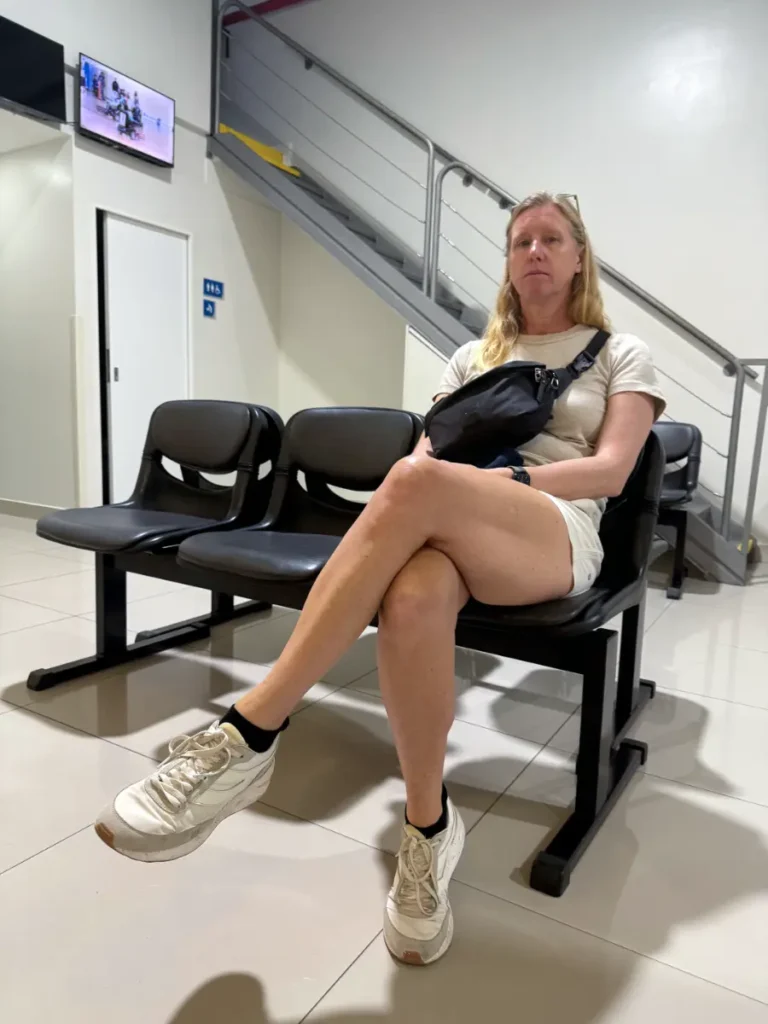
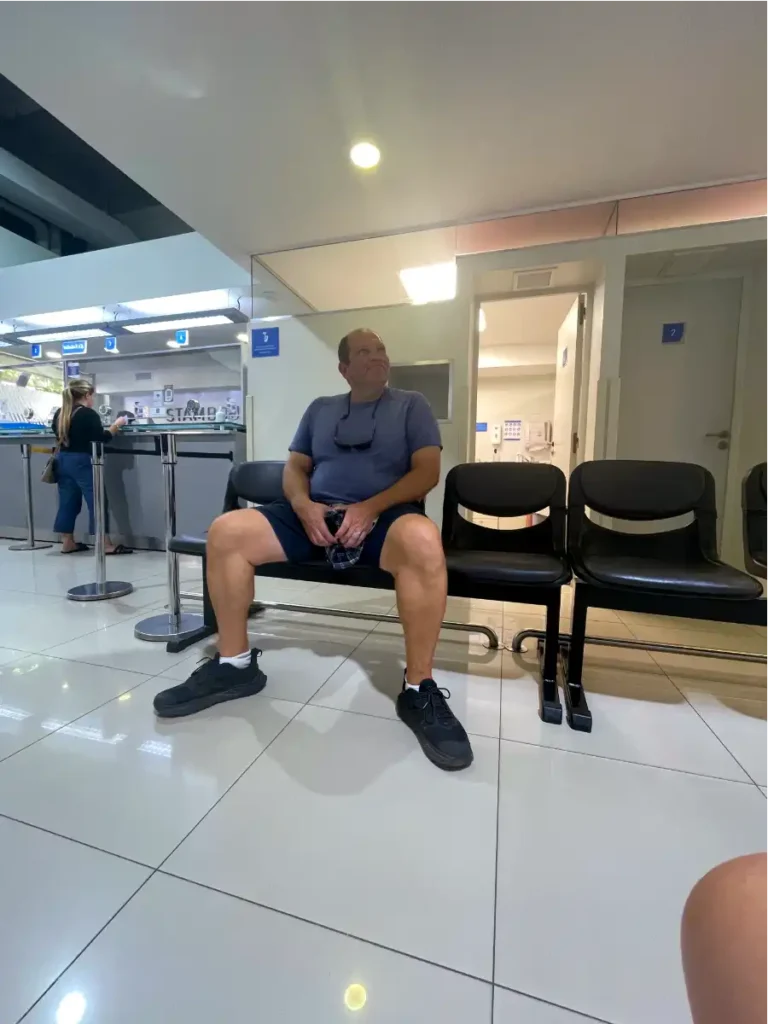
Other Vital Health Tips for Nomads Over 50
In addition to vaccinations, these steps have helped us and can also help you stay healthy while traveling:
- Prevent Mosquito Bites
- Use repellents with DEET or picaridin.
- Wear light-colored, long-sleeved clothing.
- Sleep under mosquito nets or in screened accommodations.
- Avoid outdoor activities at dawn and dusk when mosquitoes are most active.
- Stay Hydrated
- Pack a reusable water bottle and use purification tablets if needed. Staying hydrated is especially important in tropical climates. We have never drunk or felt we needed to drink so much water.
- Pack a Travel Health Kit
- Include pain relievers, antihistamines, rehydration salts, electrolytes, and prescription medications. For medicines that require cooling or refrigeration, we’ve found the Frio cooling wallet works great, even for long or multiple-day journeys without the need for ice.
- Get Insurance
- Travel health insurance is a must for nomads over 50. Look for policies that cover medical emergencies, evacuation, and pre-existing conditions.
- Know Your Health Limits
- Listen to your body, take breaks, and don’t overexert yourself, especially in high altitudes or tropical heat.
Why These Precautions Matter
We’ve met many travelers who’ve faced health challenges that could have been avoided with better preparation. Being proactive about vaccines and health measures means fewer worries and more time to enjoy South America and other incredible global travel experiences.
We’ll continue to share updates about our vaccination journey and other health tips for long-term travelers over 50. Do you have questions or tips of your own? Let’s chat in the comments on social media or our website!
Stay safe, stay adventurous, and see you on the road!

